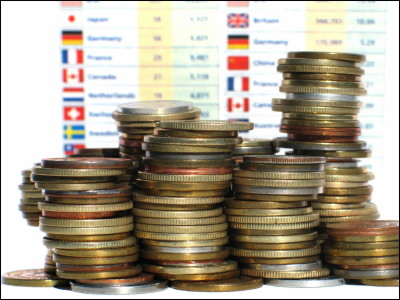Even the very wealthy feel happier the more money they have, and the gap in happiness between the wealthy and middle-income groups is larger than the gap between the middle-income and low-income groups.

It is widely believed that the increase in happiness due to money reaches a plateau at a certain level, with past studies reporting that the threshold is around an annual household income of $75,000 (approximately 12 million yen). However, a study by Matthew Killingsworth, a researcher on human happiness at the Wharton School of the University of Pennsylvania , found that 'happiness continues to increase with assets even if the annual income exceeds $500,000 (approximately 80 million yen).'
Money and Happiness: Extended Evidence Against Satiation | Happiness Science
https://happiness-science.org/money-happiness-satiation/
The question of 'Does money make you happy?' has intrigued many people for many years, and many studies have found that there is a certain correlation between money and happiness. The next question that comes to mind is, 'Does the more money you have, the happier you are? Does the correlation between money and happiness plateau at a certain level of income?' However, this is difficult to study due to a lack of data on economically wealthy people.
'Perhaps wealthy people are less willing to spend their free time filling out surveys,' Killingsworth said. 'The vast academic literature examining the relationship between income and happiness has almost entirely examined a narrow range of incomes, making it difficult to draw conclusions about overall trends. For example, if we study only people earning up to $100,000 a year, we may uncover trends that would not tell us what would have been observed across a wider income range.'

Although there are many studies on money and happiness, Killingsworth said he was unaware of any studies comparing people with annual incomes of around $500,000 to those wealthier than that. So he collected samples of low- to high-income Americans and samples of extremely wealthy people from multiple studies and compared their happiness levels using a measure of life satisfaction.
The data for the low- to high-income brackets was collected through an app called Track Your Happiness, developed by Killingsworth. Respondents were 33,269 employed adults living in the United States with a household income of at least $10,000 a year who answered questions about their life satisfaction.
The samples of the very wealthy were collected in two studies, one of which was
Although the questions about life satisfaction varied slightly across studies, they basically asked participants to rate their degree of agreement with the statement 'I am satisfied with my life' on a 7-point scale from 1 (strongly disagree) to 7 (strongly agree).
The graph below shows life satisfaction on the vertical axis and household income on the horizontal axis. Although the respondents from the low- to high-income brackets had a wide range of annual incomes, from $10,000 to more than $500,000, it can be seen that life satisfaction consistently increases as annual income increases. In addition, the wealthy with many assets (red and blue dots. The red dots with lower incomes were collected for comparison) have even higher life satisfaction, suggesting that the relationship between money and happiness may continue well beyond $500,000.

While the life satisfaction of people in the low-income bracket averaged 4.14, just above the midpoint of the scale, the two wealthy groups scored significantly higher, at 5.77 in the 1985 study and 5.82 in the 2018 study. The financial situations of the low-income and wealthy brackets are so different that it is unlikely that an increase of just a few million yen in income would make such a big difference, but it does show that happiness is at least heavily influenced by money.
The study also showed that the gap in happiness between the middle and wealthy classes was larger than that between the low and middle classes. For example, the difference in life satisfaction between the wealthy and those earning between $70,000 and $80,000 a year was 1.22, while the difference between those earning between $70,000 and $80,000 a year and those with the lowest incomes was 0.44, about one-third of that.
Killingsworth pointed out that the results of this study suggest that the relationship between money and happiness continues even at fairly high incomes, and that even if there is a threshold at which happiness does not increase in proportion to wealth, it is likely to be much higher than an annual income of several tens of millions of yen. He went on to argue that money is merely one factor that shapes happiness, and that sacrificing something for money could lead to a decrease in overall happiness.
Related Posts:
in Science, Posted by log1h_ik







